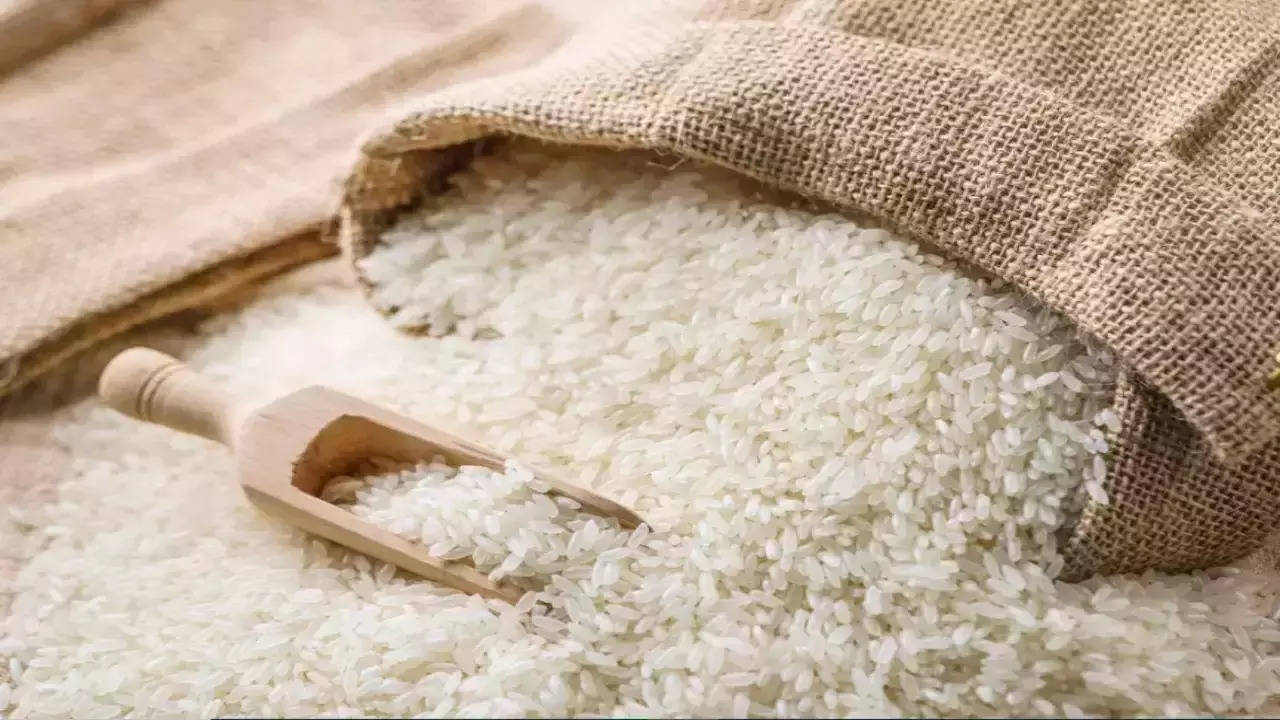Pakistan has set a minimum export price (MEP) of $1,050 per tonne for basmati rice, prompting India to consider reducing its MEP by $200-300 from the current $1,200 per tonne, sources told ET. This move aims to ensure that Indian basmati rice exporters remain competitive globally and don’t lose out to the neighboring country.
Additionally, with the upcoming Lok Sabha elections, the government is cautious about farmer discontent in Punjab, Haryana, and Western Uttar Pradesh, where farmers face potential losses of Rs 10,000 per acre. The rates of newly harvested rice have crashed by Rs 400 per quintal after the new minimum export price was announced by the government.
Trade sources revealed that Commerce Minister Piyush Goyal held a virtual meeting with basmati exporters, during which industry representatives emphasized the need to lower the MEP to $850 per tonne. A member of the All India Rice Exporters Association, who attended the meeting, told ET that an official order from the ministry is expected by Wednesday or Thursday. Industry associations have previously met with a government committee chaired by the head of the Agricultural and Processed Food Products Export Development Authority (APEDA) to request a reduction in the MEP.
While a final decision has not been reached, a government official confirmed that it is under consideration. Some varieties of basmati rice are exclusively grown for export, with no impact on the domestic market, the official said.
In August, the government banned basmati rice exports below $1,200 per tonne to prevent potential fraudulent shipments of regular white non-basmati rice disguised as high-quality basmati rice. Sub-$1,200 contracts were put on hold, and APEDA was asked to form a committee to investigate the matter.
Suraj Agarwal, CEO of RiceVilla, a rice marketing and exporting company, pointed out that the current MEP of $1,200 per tonne (Rs 100 per kg) is higher than the average export price of $950 per tonne. The arrival of the new crop of basmati, known as the 1509 variety, has begun, and timely export orders are crucial to compete with Pakistan, which has set its MEP at around $1,050 per tonne, he said.
Additionally, with the upcoming Lok Sabha elections, the government is cautious about farmer discontent in Punjab, Haryana, and Western Uttar Pradesh, where farmers face potential losses of Rs 10,000 per acre. The rates of newly harvested rice have crashed by Rs 400 per quintal after the new minimum export price was announced by the government.
Trade sources revealed that Commerce Minister Piyush Goyal held a virtual meeting with basmati exporters, during which industry representatives emphasized the need to lower the MEP to $850 per tonne. A member of the All India Rice Exporters Association, who attended the meeting, told ET that an official order from the ministry is expected by Wednesday or Thursday. Industry associations have previously met with a government committee chaired by the head of the Agricultural and Processed Food Products Export Development Authority (APEDA) to request a reduction in the MEP.
While a final decision has not been reached, a government official confirmed that it is under consideration. Some varieties of basmati rice are exclusively grown for export, with no impact on the domestic market, the official said.
In August, the government banned basmati rice exports below $1,200 per tonne to prevent potential fraudulent shipments of regular white non-basmati rice disguised as high-quality basmati rice. Sub-$1,200 contracts were put on hold, and APEDA was asked to form a committee to investigate the matter.
Suraj Agarwal, CEO of RiceVilla, a rice marketing and exporting company, pointed out that the current MEP of $1,200 per tonne (Rs 100 per kg) is higher than the average export price of $950 per tonne. The arrival of the new crop of basmati, known as the 1509 variety, has begun, and timely export orders are crucial to compete with Pakistan, which has set its MEP at around $1,050 per tonne, he said.
Denial of responsibility! YoursTelecast is an automatic aggregator of the all world’s media. In each content, the hyperlink to the primary source is specified. All trademarks belong to their rightful owners, all materials to their authors. If you are the owner of the content and do not want us to publish your materials, please contact us by email – admin@yourstelecast.com. The content will be deleted within 24 hours.


